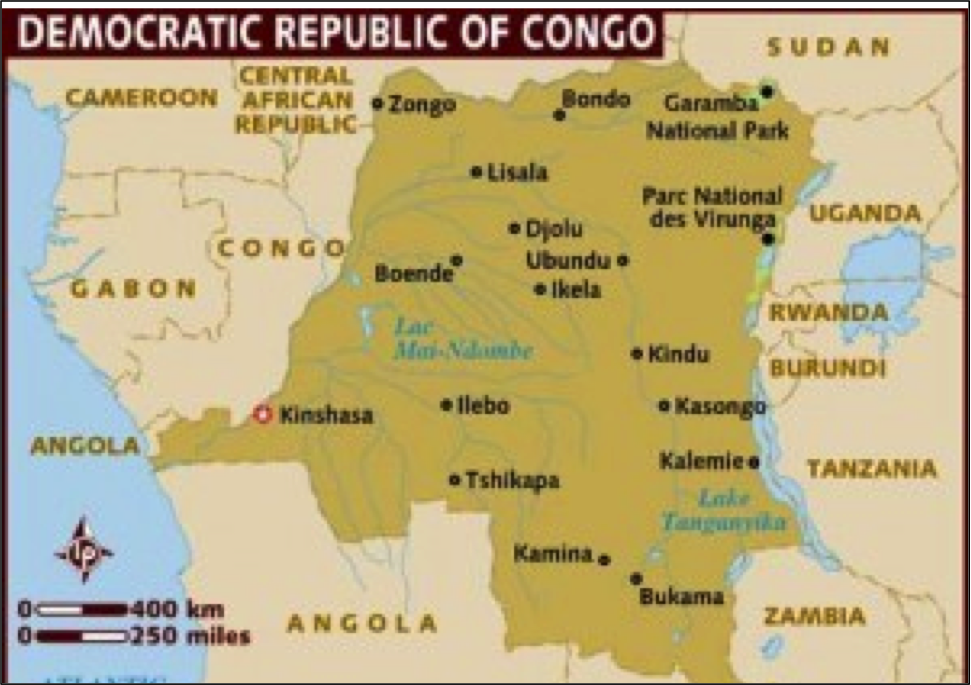By Dismas Nuwaine
On June 30th, 1960, the Democratic Republic of Congo gained independence, amidst wild celebrations among the natives for their long-awaited independence.
The Congolese students’ community at Uganda Christian University (UCU) had their fair say on what this independence means to them.
“It means freedom for us as black people in the Congo and also responsibility because, as independent people, we must be in a position to take care of our own affairs,” remarked Lewis Cherubala, the president of the Congolese Students Association at UCU.
He also couldn’t deny his nostalgia for their insightful leader in Lumumba, whom he earmarked as a great patriot of the country, taken before his time.

This same idea was espoused by Nadege Sifa, a first-year Congolese student pursuing her Higher Education Certificate.
“We will always remember Lumumba on independence, for he died a painful death trying to salvage our country from neo-colonial domination even after independence,” said Sifa rather reflectively.
On the contrary, Nabasha Seth, a first-year student also undertaking his first year of the Higher Education Certificate, could not hide his dissatisfaction towards his country’s independence. “Are we really independent?” asked Seth.
“There’s great over dependence on western countries, to the point that we are still using their education curriculum. In the Congo, we are importing a lot of commodities from abroad and within Africa; can’t we start to manufacture these on our own? ” attested to a serious-looking Seth.
Imvura Mary, a first-year student also in her first year pursuing a higher education certificate, a dweller of Kinshasa, the capital, also couldn’t hide her desire to change something about her country as a student.
“There’s a need for change in the mentality of the people. In the capital, there’s a lot of plastic waste which has to be removed by all means and I am willing to champion that,” said Mary.
She also called upon the people to work hard, invest their returns in other ventures and to desire peace since it is fundamental to development.
Lewis, the major in procurement and logistics management, also sent out a message to his fellow Congolese compatriots studying at UCU.
“Let’s work hard and learn from what we are seeing here. It’s not that Uganda is the most developed country in Africa, but there’s a lot to learn. We didn’t just come for a degree but also ideals to bring about development back home,” asserted Lewis sternly.
Sifa concluded her utterance with a stunning message of optimism, as she encouraged her country’s people to remain hopeful and steadfast, for greater things are yet to come; peace and utmost prosperity.
The UCU administrator of international who also doubles as the male warden, Rev. Ddamba Anatori Simon Peter, says that as the university they celebrate Congolese independence with the UCU Congolese community. However, the students celebrate their independence, both physical and spiritual independence, by accepting Jesus Christ as the country even before men.
“I encourage them not to lose focus but to work hard and excel as they get a complete education for a complete person so as to represent the university powerfully as they go back to their home countries,” said Ddamba Anatori.
He went ahead to encourage the UCU Congolese student community not to lose focus if they want to succeed and graduate. He reminded them (Congolese students) of the archbishop of Congo, who once was a student at UCU. Hence, the Congolese students should keep the candle burning.
The Democratic Republic of Congo is a vast country within the middle of Africa, stretching from the west coast to the eastern part of Africa.
Inhabiting an area of about 2.345 square kilometers, the DRC is the largest country in sub-Saharan Africa, encompassing an area that is only rivaled by Algeria in the whole of Africa.
The culturally diverse country, with about 200 ethnic groups, received independence from the Belgians in 1960.


